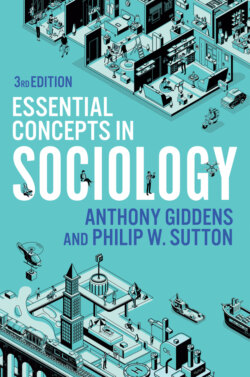Читать книгу Essential Concepts in Sociology - Anthony Giddens - Страница 81
Critical Points
ОглавлениеInteresting though many constructionist accounts may be, critics object to their ‘agnosticism’. Hannigan’s study of biodiversity, for instance, is missing something important. Is biodiversity loss an increasingly serious social and environmental problem? This question is not addressed and cannot be addressed by social constructionism. To do this we need the expert knowledge of biologists, natural historians and environmental scientists. Very few sociologists have the expert knowledge required to engage in detailed debates about biodiversity or many other problems. For some, such as critical realists, without including this expertise in the analysis, sociology gets reduced to a series of discourse studies looking at statements, documents and texts without ever getting to the bottom of the real issue at hand.
One further criticism is that social constructionism seems to prioritize the politics of claims-making and sometimes appears more useful to political and social movements than to scientific sociology. Demonstrating how relatively powerful social groups are able to shape and dominate political debates is a useful function, but constructionism very often seems to take the side of the underdog. In that sense it has been argued that the perspective is politically biased. For example, women’s movements used constructionist arguments to show that there was no ‘natural place’ for women in the private, domestic sphere, and that child-bearing and child-rearing did not present ‘natural’ barriers to gender equality. The criticism here is not that such arguments are illegitimate, but that constructionism is closer to political strategy than scientific research methods.
Given that all social phenomena are potentially amenable to a social constructionist analysis, it perhaps inevitable that social constructionism was itself seen as socially constructed – hence, Motyl’s (2010) caustic discussion and dismissal of strong versions of constructionism. This paper is concerned with nationalism and identity-formation but should be read for its separation of mainstream social constructionism, which the author sees as quite ‘run-of-the-mill’, and strong constructionism, which is ‘unusual, exciting and wrong’.
